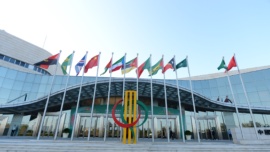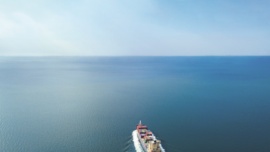The state is overrated.
Think about the One Belt, One Road (OBOR) initiative and the Greater Bay Area.
Both are plans under China’s national strategy to systematize and re-organize its economy for the next several years to come.
But they aim at garnering results under different arrangements.
While the Belt and Road is an international strategy, the Greater Bay is one amongst various other plans of similar scope to optimize production and harness regional integration at the domestic level.
It is a two-fold strategy to secure the means for keeping the ball of growth rolling and fostering consumption. China creates markets.
Both initiatives concern Macau in a similar fashion. One calls the local government to adhere to the Road, mostly by harnessing connections with Portuguese-speaking countries. The other drives the city further down the ineluctable path of merging within the Cantonese cluster.
The Greater Bay is a reality. The Belt and Road is a loose goal, at least as long as it is not, in what relates to Macau, tied to a funding agency that caters for and captures concrete projects.
Negotiated at the city level, the interregional cluster generates policy on customs, logistics, finance, and infrastructure. And it moves capital. For instance, several Macau-based companies, from banking and real estate to law firms have opened representative offices in Hengqin.
Nothing of the sort here has materialized under OBOR.
The MSAR Government can take advantage of initiatives that already exist, such as the Macau Forum, which acts as a connector with the Portuguese-speaking world.
But new projects are welcome for a city like Macau, in which there are continuous claims to internationalize.
It does not have to be complicated. The Portuguese-speaking thread is long, complex, and large enough to generate promising prospects.
To go back to my first point, agreements do not have to be crafted only at the nation-state level.
Several cities in South and South-east Asia, for instance, have populations who claim Portuguese-descent and speak some local form of Portuguese, in India, Indonesia, Malaysia, Cambodia and Vietnam. OBOR promotes development in infrastructure. But strengthening cultural links can cause no harm. Perhaps other opportunities in trade, business and policy exchange will follow.
Macau should make full and good use of its primary condition, that of being a city. And not just any city. A city with a global history, open to the world.























